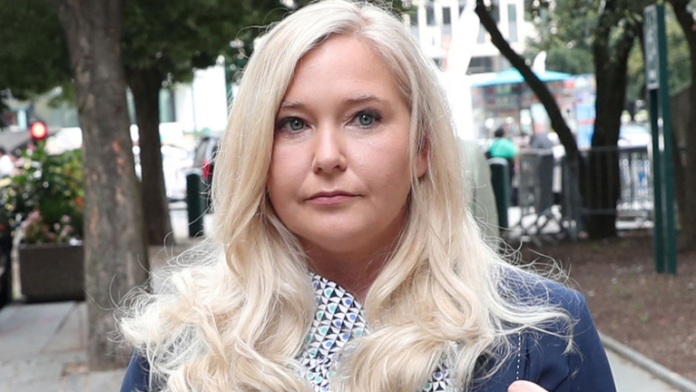Virginia Giuffre, a woman whose unwavering strength and resilience motivated the world, is no longer with us. Her suicide at the age of 41 years in Australia has the world grieving the loss of a voice that stood firm against one of the darkest abuse networks in modern times.
Her story was not so much about suffering, it was about survival. She had an incredibly troubled youth and was in the control of prominent individuals who abused vulnerable people. Yet she refused to let her pain define her. She had a voice both deeply personal for its honesty yet also universally poignant for its shared suffering.
Also read : When Is The First SSDI Payment In May 2025? Social Security Disability Schedule
A Life Built on Survival
From childhood, Virginia’s life was not that easy. With insecurity surrounding her from a very early age, she was neglected and abused before her name made it to the news. She was raised by individuals who provided shelter and protection but exploited her for their own good.
As a teenager, she was a member of a secret abuse network that worked behind the scenes. But unlike so many others, she took the courageous decision to talk. Her words broke silence and opened the floodgates for others to follow.
Virginia never gave up. In what she did, she brought to the public attention widespread abuse, exploitation, and safeguarding mechanisms for the rich. She symbolized survival, not just for herself, but for all others who never stood a chance of being heard.
A Voice for the Voiceless
For years, Virginia was a solitary voice, demanding accountability. She named names. She called out lies. And she demanded justice be served, not for herself but for all the girls who had ever been hurt and silenced.
Her interviews, speeches, and public remarks provided strength to thousands of victims who had hidden their pain deep within. She didn’t need to speak, but she did. And that decision marked a turning point in the war against trafficking and abuse.
Her voice was one of strength, sorrow, and authenticity. It challenged powerful forces. It raised questions about systems that were made to ignore the cries of the powerless. It sparked movements and changed public attitudes.
The Last Days
In her final weeks, Virginia suggested that she was ill. She informed others that she felt like she only had days to live. Those who followed her life were worried, but few would have expected such a tragic conclusion.
Her passing has helped bring attention again to the unseen day-to-day struggles the survivors have. Opening up does not always result in healing. In other instances, it brings fresh wounds. The weight of the traumatic past, the stress of public scrutiny, and the toll of the constant fight may break even the strongest will.
Her family talked about her as if she were a warrior very rude, bold, and not afraid. And she was. But warriors do sometimes fall.
A Legacy That Lives On
Virginia’s legacy will not perish with her. She has changed lives. She made others listen. She forced hard conversations. Her name will forever be linked with strength, truth, and the pursuit of justice.
Today, people all over the world are looking back on her life and mourning her death. Survivors are sharing their stories, motivated by her courage. Activists are doubling their calls for reform. And the world, once too quiet, is speaking a little louder.
Although she is gone, her legacy remains. Her life is a testament to the fact that change can be achieved, even in the face of such suffering. And her voice, quiet as it now is, will continue to ring out in every courtroom, every protest, and every heart that finds the courage to tell the truth.
Also read : Controversial Opening of Costco in Stuart, Florida
Rest in peace, Virginia. You lit a path others will now follow.








